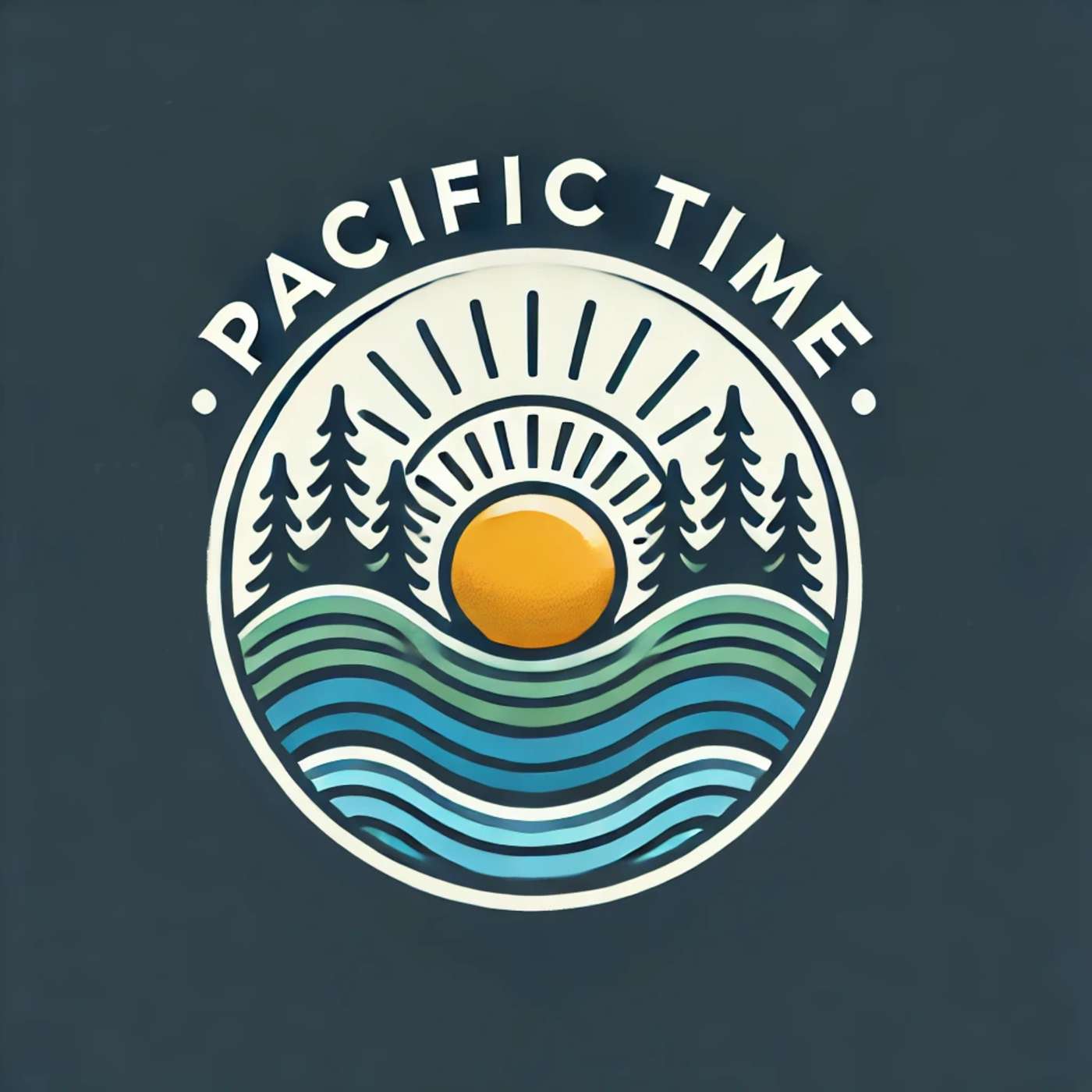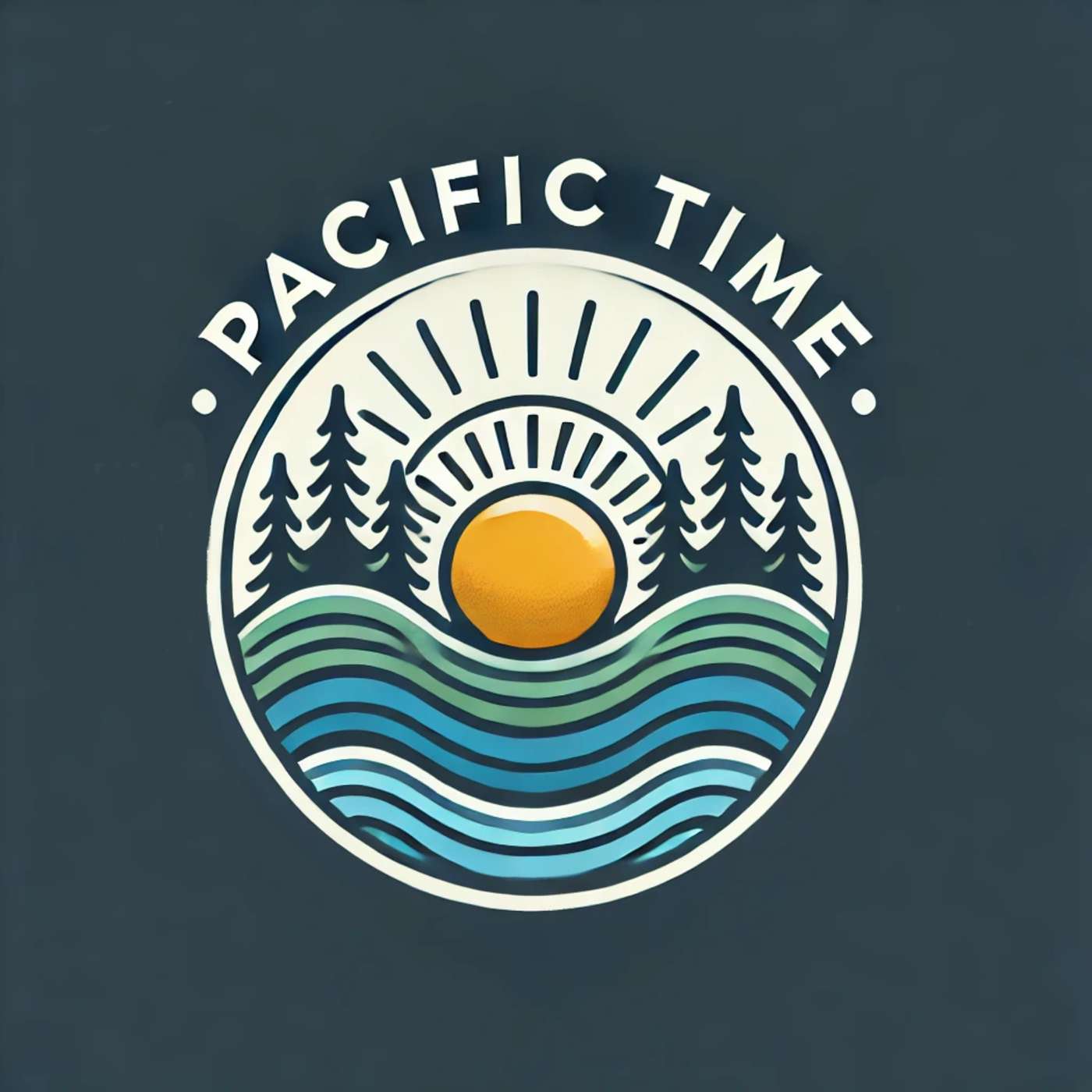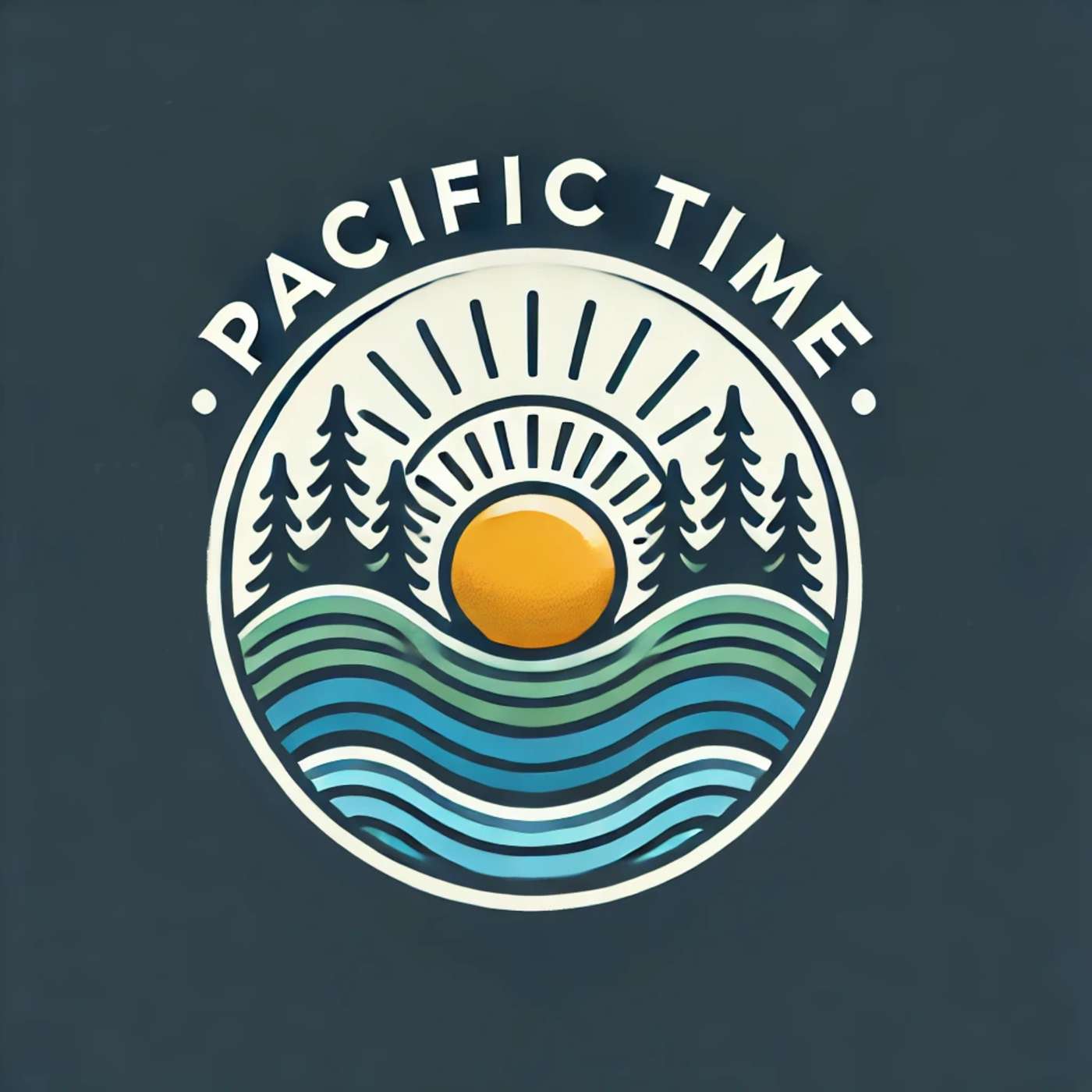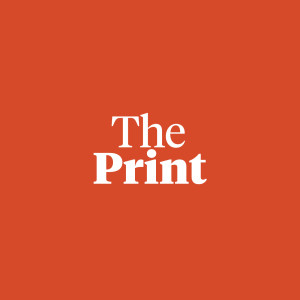

Pacific Time: The "What if...?" of West Coast Independence
https://feeds.transistor.fm/pacific-time-the-what-if-of-west-coast-independenceEpisode List

38 Did the Election Mark a New Dawn or a False Horizon? With Ashley Brown, Mark Fiore & Sandeep Kaushik
The 2025 elections delivered shockwaves across the country—and even sharper aftershocks across the West Coast.In our first Pacific Time compilation episode, Greg brings back three trusted voices back to make sense of what just happened and what might be coming next: • Ashley Brown, comparative elections expert • Mark Fiore, Pulitzer-winning political cartoonist • Sandeep Kaushik, West Coast political strategistAnswering separately we unpack:Zohran Mamdani defeating Andrew Cuomo in NYC and what (if anything) it means for us on the West CoastPossibly pragmatic socialist Katie Wilson toppling the incumbent in Seattle's race for mayorCentrist Democrats sweeping governor’s races in New Jersey & VirginiaCalifornia’s Prop 50 landslide—an aggressive response to Texas’s partisan redistrictingEach guest answers the same big questions: What surprised them? What signals matter for 2026? What are their dream and nightmare scenarios?It’s a lively, alarming, and unexpectedly hopeful episode about a country on the brink—and why the West Coast may once again lead the way.HighlightsWhy Prop 50 passed by a wide margin—and why it was an “up-down vote on Trump’s rule.”Ranked choice voting lessons from New York’s mayoral upsetThe widening divide within the Democratic Party—and why it may intensify, not resolveWhat Seattle’s knife-edge mayoral race says about America’s political stalemateThe 2026 headlines our guests can imagine now—from “Blue Wave Sweeps America” to warnings of an autocratic futureAbout Our GuestsAll returning friends of the pod...Ashley Brown — Comparative Elections ExpertA longtime student of electoral systems around the world, Ashley specializes in how voting structures influence democratic legitimacy, turnout, and trust. He brings deep, global perspective on gerrymandering, ranked choice voting, proportionality, and election design.Mark Fiore — Pulitzer-Winning Political CartoonistOne of the most influential and groundbreaking political cartoonists working today, Mark’s satirical animations and illustrations have shaped how millions make sense of American politics, extremism, and hypocrisy.Sandeep Kaushik — Political Strategist & CommentatorA Seattle-based political consultant and co-host of Blue City Blues and Seattle Nice, Sandeep is one of the West Coast’s sharpest interpreters of local and national political dynamics.Related Episodes25 Can Better Ballots Beat Bad Maps? With Ashley Brown12 What If the Resistance Was Funny? With Mark Fiore10 What if Blue Cities Got It Together? With Sandeep KaushikResourcesDonald Trump’s Plan to Subvert the Midterms Is Already Under Way - The AtlanticMayor-Elect Katie Wilson Says Seattle Nice is “Special” - Seattle Nice Podcast (Spotify)Mark Fiore’s Political Cartoons - Substack5 California election takeaways after voters pass Proposition 50 - CalMattersA Spicy Question For YouWhat are your dream and nightmare scenarios for where the country goes in 2026? (Provocative, far-out, thoughtful answers might just make it on the next episode)Answer Here and Join the ConversationYouTube; Substack; or Instagram. Like, subscribe, share and, most importantly, share your comment on the spicy question above. Pacific Time Podcast is on Apple Podcasts, Spotify, Pocketcast, Podbean, and many other platforms. Please follow, share, and leave a review.Thank You:Guests: Sandeep Kaushik, Mark Fiore, Ashley BrownProducer: Tim WohlbergMusical Inspiration: Caamp, Mumford & Sons, Old Crow Medicine Show (Can you tell I'm on a bluegrass kick?)Moral Support: My family who gathered from far & wide over Thanksgiving and pulled off a great feast

37 Reinvent the Two-Party Political Game? With Robbie Bach
What if America’s political dysfunction isn’t a moral failure — but a design failure?In this episode, Greg talks with Robbie Bach, former President of Xbox and now a leading civic reform advocate, about how the United States might update its political operating system. Robbie argues that polarization isn’t an accident — it’s an output of incentives. And if incentives can be redesigned, the system can be reinvented.This is a conversation about innovation, democracy, and why the West Coast might be the country’s best testbed for political renewal.In this episode, we cover:Why the two-party system is fragile, not inevitable What tech’s prototyping mindset could bring to civic life Why D.C. is structurally incapable of reforming itselfWhy Tech CEOs are smart to be at The White House, and how they’re missing opportunities to advocate for better policyThe civic lessons Robbie learned after XboxHow creating stories about tech, politics, and national intrigue raise questions about the real worldGuest BioRobbie Bach led the creation of Xbox and served as President of Microsoft’s Entertainment & Devices Division. Since retiring, he has become a civic designer, author, speaker, and advocate for political reform, systems thinking, and community leadership.Related ResourcesLetters to the Democrats and Republicans - LinkedIn, Robbie Bach Bipartisan Policy CenterThe Blockchain Syndicate: A Contemporary Thriller, Robbie BachRelated EpisodesCould We Grab Economic Power By the Middle? With David GoldsteinRefresh the American Brand, West Coast First? With Michael MegalliWhat if National Service Jump Started the West Coast Workforce? With Nicole TrimbleWhat if Silicon Valley and Democracy Got Back Together? With Margaret O'MaraA Spicy Question: What advice could gamers offer on how to build a more just and equitable world?Join the conversation: Pacific Time is making good trouble asking questions about the future of the West Coast on Substack; YouTube; BlueSky, Instagram, and Facebook. Like, subscribe, share and, most importantly, share your comment on the spicy question above. Listen: Pacific Time Podcast is on Apple Podcasts, Spotify, Pocketcast, Podbean, and many other platforms. Follow, share, and leave a review.Thank You To:Guest: Robbie BachProducer: Tim WohlbergCoach: Jeremy N. SmithFamily & Friends: For cheering on the podcast and big milestones ahead (Thanksgiving! Madrid!)Trampled by Turtles, Alison Brown & Steve Martin for providing my soundtrack to this week’s production process

36 Can We Grab Economic Power By The Middle? With David Goldstein
What if everything we’ve been told about the economy — about housing, inflation, and government debt — was upside down? What if the problem isn’t that we’re spending too much, but that we’re letting the wrong people decide what we can spend on?What if you feel rich when you leave the West Coast and poor when you live in or visit one of our big cities like LA, SF, or Seattle?In this episode of Pacific Time, host Greg Amrofell talks with David “Goldy” Goldstein, a sharp-tongued political strategist at Civic Ventures, co-founder of the legendary blog HorsesAss.org, and co-host of the Pitchfork Economics podcast with billionaire provocateur Nick Hanauer.Goldy pulls back the curtain on America’s economic myths—how fear of debt and obsession with austerity keep us from solving the real problems. He argues that public options aren’t just safety nets for the poor, but infrastructure for prosperity that give everyone stability and the opportunity to thrive.Together, Greg and Goldy explore how fiscal sovereignty and economic imagination could transform life on the West Coast, and why it’s time for the public to assert their power and for states to act on behalf of their people, not just the most affluent interest groups.HighlightsWhy “fiscal responsibility” has become political cowardiceHow economic illiteracy drives housing scarcity and bad public policyThe case for “public options” in housing, healthcare, and education—not as charity, but as a foundation for many people in many circumstancesWhy West Coast prosperity depends on new conceptions of the economy that account for powerGuest BioDavid Goldstein, known widely as Goldy, is a senior fellow at Civic Ventures, a Seattle-based public policy incubator dedicated to progressive economic reform. A former satirist and founder of HorsesAss.org, Goldy became one of the West Coast's sharpest voices for tax fairness and economic justice. He co-hosts Pitchfork Economics with Nick Hanauer, where he translates complex economic theory into bold, practical ideas for shared prosperity.Related ResourcesCivic VenturesPitchfork Economics PodcastHorsesAss.orgDeconstructing Housing : Democracy Journal, David Goldstein, Spring 2025Related Episodes35 What If Public Banks Based Here Bought Us Resilience? With Marco Rossi11 What if Silicon Valley and Democracy Got Back Together? With Margaret O'Mara03 What If The West Coast Reclaimed Its Federal Taxes? With Julie DingleyA Spicy Question: What if economic independence began with the courage to invest in ourselves—yes, to protect the poor, and also to stabilize the middle and boost the ambitious?Join the conversation: Pacific Time is making good trouble asking questions about the future of the West Coast on Substack; YouTube; BlueSky, Instagram, and Facebook. Like, subscribe, share and, most importantly, share your comment on the spicy question above. Listen: Pacific Time Podcast is on Apple Podcasts, Spotify, Pocketcast, Podbean, and many other platforms. Follow, share, and leave a review.Thank You To:Guest: David GoldsteinIntro: Jasmin Weaver via a fascinating night at The Block TableProducer: Tim WohlbergFamily & Friends: For cheering on the podcast and fun milestones (parents weekend, senior night, and the dates that got this chapter started) Pearl Jam, Fugees & Dave Matthews Band for providing my soundtrack to this week’s production process

35 What If Public Banks Based Here Bought Us Resilience? With Marco Rosaire Rossi
What if banking our own money on the West Coast could help us fund housing, infrastructure, and small business growth? And what if it bought us greater financial freedom from Wall Street and Washington, D.C.? In this episode of Pacific Time, host Greg Amrofell talks with Marco Rossi, a public banking advocate and legislative strategist with Washingtonians for Public Banking. Together, they explore how state- and city-owned public banks could equip us to address our own challenges and insulate us from the financial shenanigans of Mega Banks and mis-guided politicians.Rossi explains how the Washington Public Bank bill could anchor a new model of regional resilience—one where public finance serves the public good. He connects the dots between financial sovereignty, local democracy, and the broader movement to establish public banking systems across the U.S.From North Dakota’s century-old state bank, to the link between China’s public banking system and breakneck development, the conversation shows how public control of capital could stabilize local economies, strengthen autonomy, and prepare the West Coast for shocks—economic, political, and environmental. Laws are already on the books in California and Washington. Now’s the time for a concerted push by elected officials, business leaders, and concerned citizens, for whom federal cuts and government shutdowns illustrate the fragility of our national financial system.HighlightsWhy public banking is the missing pillar of West Coast resilienceHow Washington’s proposed public bank could redirect billions in taxpayer funds into local housing, energy, and infrastructureWhat the Bank of North Dakota and European public banks can teach usHow state financial sovereignty strengthens political autonomyWhy local investment builds stability—and what happens when it’s outsourced to Wall StreetHow public banks can partner with community credit unions, tribes, and cities to fund shared prioritiesGuest BioMarco Rosaire Rossi is a strategist and community organizer with Washingtonians for Public Banking, working to create Washington State’s first public bank. His advocacy focuses on how public financial institutions can advance economic democracy, fund sustainability projects, and protect communities from volatile private capital cycles.Marco also collaborates with national efforts through the Public Banking Institute, the Coalition for a National Infrastructure Bank, and the American Monetary Institute, helping connect state and federal reform movements toward a more accountable financial system.Related ResourcesWashingtonians for Public Banking - Website, Substack, Instagram, BlueSky, YouTubePublic Banking InstituteCoalition for a National Infrastructure Bank —Z Magazine: Florida’s Conservative CFO Proposes a State-Owned Public BankEllen Brown: Web of Debt Substack; The Public Bank Solution on AmazonBank of North DakotaRelated Episodes34 What If Tiny Homes Are a Big Part of Our Housing Solution? With Zack Giffin31 Could A West Coast Carbon Market Build Us An Even Bigger Economy? With Reuven Carlyle23 Refresh the American Brand, West Coast First? With Michael Megalli07 A West Coast Wake-up Call as the US Scrambles the World Order? With John ZysmanA spicy question: Why wouldn’t West Coast state governments, local governments, and area businesses choose their local public bank? (I’m struggling to find reasons other than inertia and trust purchased via advertising)Join the conversation: Pacific Time is making good trouble asking questions about the future of the West Coast on Substack; YouTube; BlueSky, Instagram, and Facebook. Like, subscribe, share and, most importantly, share your comment on the spicy question above. Listen: Pacific Time Podcast is on Apple Podcasts, Spotify, Pocketcast, Podbean, and many other platforms. Follow, share, and leave a review.Thank you to:Guest: Marco Rosaire RossiIntro: Ellen Brown (via Nomi Prins)Producers: Tim Wohlberg, Valerie McTavishFamily & friends: For nodding and smiling as I enthuse (again?!) about liberating policy innovation

34 What if Tiny Homes Are A Big Part of Our Housing Solution? With Zack Giffin
What if the solution to America’s housing crisis isn’t just about building more, but smaller — smarter homes that restore freedom, affordability, and balance?Zack Giffin — professional skier, builder, and co-host of Tiny House Nation — joins Pacific Time to explain how 400 square feet could help fix housing affordability, mental health, and climate resilience across the West Coast.At a time when America faces a shortage of 4–5 million homes, we also have more square footage per person than ever before. Zack Giffin believes this paradox reveals a deeper truth: our housing crisis isn’t just about supply, it’s about efficiency.From his early days as a ski bum living out of a rebuilt RV to hosting Tiny House Nation on Netflix, Giffin has become one of the most thoughtful voices in the movement for small-scale living. He argues that “tiny homes” aren’t about sacrifice — they’re about moderation, dignity, and freedom. In this episode, he and Greg explore how wheels, design, and policy innovation could open the door to new forms of ownership, family care, and sustainable living.Giffin also discusses the obstacles standing in the way: outdated building codes, zoning restrictions, and the slow-moving bureaucracy of national standards. But he’s hopeful that West Coast states can lead — creating gentle density, new pathways to ownership, and a cultural shift toward living better with less.HighlightsHow we have the biggest homes per person we’ve ever had — and yet a massive housing shortage.Why tiny homes are about moderation, not sacrifice — scaling down excess while keeping what’s essential.How outdated building and zoning codes make it easier to build a McMansion than a modest home.Why California is quietly leading a national rethink of what “home” means.How wheels could unlock affordable, movable ownership — and a new kind of social safety net.Guest BioZack Giffin is a professional skier, builder, and co-host of Tiny House Nation on Netflix. Over six seasons and 80+ episodes, he helped design and construct some of the most creative small-scale homes ever built, inspiring millions to reimagine the American Dream. Giffin’s advocacy for housing innovation has influenced state and national discussions on building codes, affordability, and sustainable design. His latest project, Tiny House Revisited on YouTube, continues his mission to show that living smaller can mean living better.Related ResourcesTiny House Nation (Netflix) – The hit series where Zack and John Weisbarth design and build tiny dream homes across America.Tiny House Revival – Season 1 Trailer - YouTube – Zack’s latest show exploring updates to iconic builds and new small-space solutions.American Tiny House Association (ATHA) – A national nonprofit advocating for legal, safe, and affordable tiny housing.International Code Council (ICC): Appendix Q — Tiny Houses – The first official recognition of tiny homes in U.S. residential building code.Fresno, CA Tiny Home Ordinance – The pioneering policy that legalized tiny homes on wheels as backyard dwellings.Zack Giffin Tears it Up at Mt. Baker Ski Area - Before he built Tiny Homes, Zack was a (Serious) SkierRelated Episodes32 Protect The Mountain by Going to The Hill? Gwyn Howat Returns with a DC Field Report14 Could Bolder Plans Re-Build Our Confidence in Government? With Nolan Lienhart02 How Can the West Coast Re-design Itself? With Mickey McManusThanks to...Guest: Zack GiffinIntro: Gwyn HowatProducers: Tim Wohlberg & Valerie McTavish
You may also like
Create Your Podcast In Minutes
- Full-featured podcast site
- Unlimited storage and bandwidth
- Comprehensive podcast stats
- Distribute to Apple Podcasts, Spotify, and more
- Make money with your podcast



